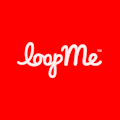Tell us a bit about the sales division of LoopMe

Tell us a bit about the sales division of LoopMe
Something that has always stood out for me is the great rapport within our sales team, which makes for a fun and productive working environment. We have ten sellers in the EMEA market, comprising a mix of UK and international sellers, with six account managers based in London.
It’s exciting to be working alongside incredibly smart data scientists whose work solves the post-cookie targeting and measurement challenges that advertisers face. LoopMe’s tech stack means the business is future-proof, providing the insights needed for brands to remain agile in the face of changing consumer trends and behaviours.
Our sales division is focussed on the promotion of its proprietary AI-driven platform, helping advertisers optimise campaigns toward their unique marketing goals. Using predictive AI models, LoopMe ensures ads are only delivered when they are most likely to meet KPIs.
How do you help your clients solve the challenges they face in digital advertising?
I work with client leads and business directors within media buying agencies, as well as commercial leads in key verticals such as tech, FMCG, travel, beauty, fashion and entertainment. With ongoing privacy regulations hindering access to quality data insights, marketers are under greater pressure to demonstrate the value of their spend and deliver ROI. They come to us because they need to prove attribution and they want real-time results. So delivering fast turnaround times are a must, as is optimisation towards the metrics that matter – real-world campaign outcomes such as purchase intent, awareness, consideration and foot traffic.
LoopMe’s sophisticated technology stack can deliver on these fronts. Our DMP holds rich data insights that inform machine learning algorithms of optimum ad placements and delivery based on an audience’s likely purchase intent and interests. This audience data is collected through our real-time survey technology PurchaseLoop Audiences, which powers the creation of custom in-market audiences for effective targeting. PurchaseLoop Brand then measures and optimises towards the specific metrics that brands care about, incorporating survey, location, and purchase data for enhanced accuracy.
The PurchaseLoop platform is 2x more effective than traditional advertising optimisation. That’s why we have a strong retention rate among our clients and a net promoter score of 76.
How did you come to do the job you do?
I started my career as a Sales Assistant at Channel4 selling TV air time. Within four and a half years I rose to become Group Head, managing a team of ten who sold advertising across C4, E4, More4 and Film4. Recognising the growing potential of online video, I left Channel4 to start my own business, Web TV, the UK’s first dedicated online video network. Under my leadership, Web TV became the UK’s principal VOD network, with revenue increasing to £5 million in four years. I eventually sold the business to Collective, helping to merge the latter company with Web TV to create the UK’s leading digital brand solutions company.
In 2018 I joined LoopMe, where I have the freedom to explore all avenues to help grow the business – something that I find incredibly rewarding. This involves looking into new products, partnerships, and geographies to drive expansion. Innovation powers every output at LoopMe, meaning we are always prepared to adapt to changing market needs. It’s very satisfying to help marketers reduce wasted spend and create effective, objective-led campaigns.
What industry trends can we expect to see in the future?
As consumers spend on average over four hours a day using apps, and increasingly shop via their smartphones, in-app advertising is set to be huge and it would be great to see advertisers making greater use of the opportunities that in-app and mobile advertising have to offer. Gaming falls into a similar bracket, giving advertisers the chance to connect with highly engaged audiences in the environments they love. Some gaming giants such as Roblox have already made the leap into the metaverse using dynamic billboards, and with luxury brands like Gucci placing ads within the game, it’s safe to say that the nascent virtual world will be another platform to watch.
The opportunities in CTV are also growing, with Netflix introducing an ad-supported model. Over a third (37%) of consumers recently surveyed by LoopMe said a cheaper price would prompt them to keep an ad-funded Netflix subscription, and in the current economic climate it’s likely other services will follow suit to offer consumers a more affordable service.
In terms of measurement, I’d love to see a shift away from proxy digital metrics such as clicks and impressions, which say nothing about real-world campaign attribution. Instead, I’d like to see a greater emphasis on outcomes-based metrics, such as purchase intent, offline sales, footfall, awareness, and consideration – the hard business metrics that can actually prove the value of marketing budgets and help advertisers meet KPIs. With this in mind, marketers could begin to trade on outcomes to produce metrics such as cost per considerer, or cost per intender.
Looking at trends more broadly, the industry is working harder to improve in two key areas: diversity, equity and inclusion and sustainability. The importance of representative workplaces is undeniable, particularly in advertising. How can creative speak to society as a whole if the people designing it are from the same background, demographic or race? While there is still a long way to go, brands, agencies and adtech companies will strive to make their businesses more inclusive.
Likewise, sustainability will continue to dominate conversations, especially as consumers are placing more pressure on companies to adopt greener practices. Our own research found that 67% of respondents feel it's important for brands to have a sustainability promise, so climate passivity has financial implications as well as ethical ones for brands.

